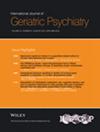Ten-Year Cognitive Trajectories and Determinants in Chinese Older Adults Without Formal Schooling: Chinese Longitudinal Healthy Longevity Survey 2008–2018
Abstract
Objectives
Lack of formal schooling remains prevalent among older adults in China, particularly in rural areas. This study investigates the cognitive function trajectory and influencing factors in older adults without formal schooling from the Chinese Longitudinal Healthy Longevity Survey (CLHLS).
Methods
The study included 2159 individuals without formal schooling (NFS) and 2234 individuals with formal schooling (FS), all cognitively healthy and aged over 60 at the first observation from the 2008 - 2018 CLHLS cohort. Cognitive function was measured using the Chinese version of the Mini-Mental State Examination (MMSE). Group-based trajectory modeling was used to identify potential heterogeneity of longitudinal changes over the 10 years. Logistic regression was used to investigate associations between baseline characteristics (age, sex, marital status, functional abilities, leisure activity, and health status and behaviors) and trajectory classes.
Results
NFS individuals were generally older (80 vs. 75.3 years), more likely to be female (72.2% vs. 29.9%), unmarried (43.1% vs. 68.2%), and underweight (27.3% vs. 17.8%). They also had higher prevalence of hearing impairment (40.1% vs. 30.5%), functional limitations (39.6% vs. 19.2%), and extreme sleep length, while lower baseline cognitive function (MMSE score: 26.5 vs. 28.2). Additionally, they were less likely to engage in exercise, leisure activities, or alcohol consumption. Three trajectories (labeled stable, slow decline, and rapid decline) were identified according to the changes in MMSE scores for both groups. For the NFS group, both the slow and rapid decline groups accounted for a larger proportion (15.0% and 12.3%, respectively) than the FS decline groups (6.5% and 5.3%, respectively), and the NFS individuals had a lower baseline MMSE score with a faster decline. In the multivariable logistic regression analyses, older age, hearing impairment, poorer functional abilities, and lower baseline MMSE scores were significantly associated with cognitive decline in both groups compared to the stable group. For the NFS individuals, female sex was a risk factor for slow decline, while marital status was associated with rapid decline.
Conclusions
These findings underscore the importance of considering formal schooling status in cognitive aging research. They also emphasize the need to address educational disparities and promote social and economic well-being, particularly for vulnerable populations, to mitigate the risk of cognitive decline and dementia.

 求助内容:
求助内容: 应助结果提醒方式:
应助结果提醒方式:


